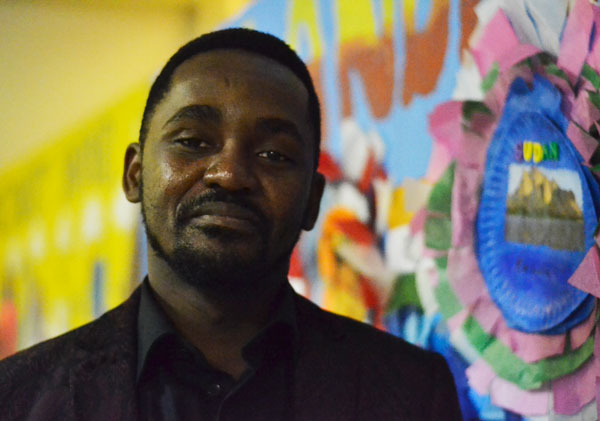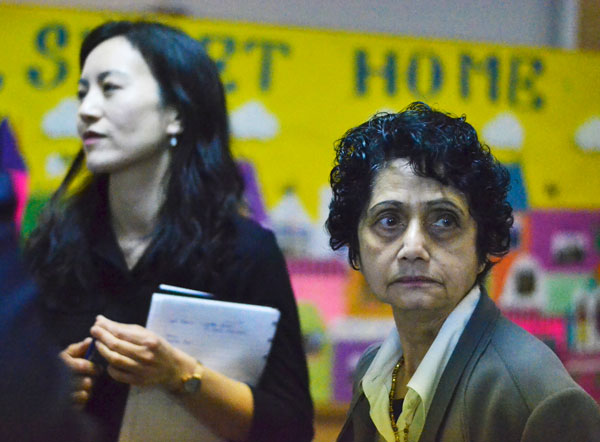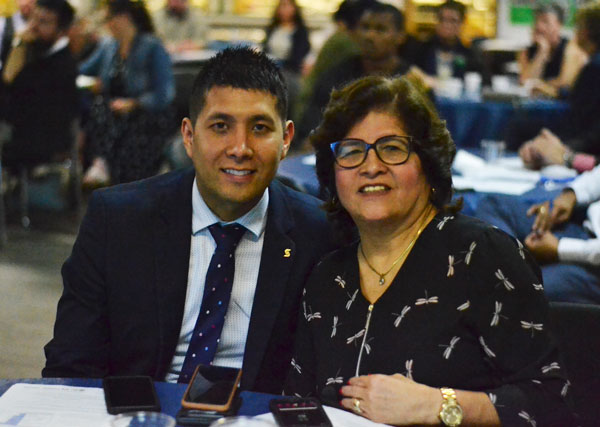
How three Prince Albert newcomers found success and peace in the land of opportunity
To many, Canada Day means fireworks, barbecues and music—the celebration of calling a country that’s known for freedom your home.
For three people with unique stories about immigrating to Prince Albert, Canada Day is a celebration of how their lives have changed since they moved to Canada.
During a meeting about making it easier for newcomers to settle into a new environment, YWCA Settlement Services had those three local residents tell their personal stories.
Angel of the North
It’s been over half a century since Dr. Lalita Malhotra came to Prince Albert from New Delhi, India. With the nickname ‘The Angel of the North’ from Indigenous elders, she’s made an impact with her unique connections to the community.
Malhotra immigrated to Canada in 1975 with the qualifications to be an obstetrician and a gynecologist. She said education was never an obstacle.
“The problem, I felt, I met, was being the only, first, female brown physician. That was the big problem, so I had to go through all those hurdles, eventually establishing my own practice all alone,” she said.
Malhotra has delivered over 10,000 healthy babies in the city across three generations, working a hefty 80 hours a week.
This was her advice for newcomers to Canada: hard work is the key to success.
“This is the land of opportunity. Take care of all of that; take all of the opportunity you can have,” she said. “Hard work. Number one. That will take you everywhere. Day and night, never complain, that’s the one answer. Never call in sick. You may be dying. You get to your work,” she said as the room giggled.
Malhohtra won Prince Albert’s Citizen of the Year award in 2008, and she continues to give to the community.
In February, her family of physicians donated $800,000 to complete the Victoria Hospital’s fundraising goal for a new neo-natal unit.
“Prince Albert is very cold, but you will not find more warmer people than in Prince Albert,” said Malhotra.
“(In India), you may not know your neighbour, but here, you know your neighbour and you’re there for them all the time.”

Finding peace after 20 years of insecurity
It’s only been a year and a half in Canada for Jered Nsimba, who settled in Prince Albert after seeking refuge from political tension in Uganda, Africa with his family.
They’d been trying to escape for almost 20 years.
“(It) sometimes raised questions as to whether my family would ever feel safe or secure in any other part of the globe as an asylum seeker. Today, I can boldly confess that such thoughts and questions no longer bother me anymore and that my struggles to attaining my bigger career in life seem to be no more. Canada has completely changed my story,” said Nsimba.
He’s now a settlement counsellor for YWCA Settlement Services. Before that, he worked several retail jobs.
After finally understanding the feeling of peace and security, Nsimba said he wants to represent people whose safety is uncertain in other countries.
“My dream is to some day be a voice, mainly for the voiceless innocent children that have had to go through quite a lot due to the wars and the political unrests in the world.”
Nsimba also sang at the YWCA Settlement Services’ fundraiser for World Refugee Day.

Hard work leads to significant career development
Guillermo Quinones Meza took on plenty of volunteer work to build his connections before he became the assistant manager of Scotiabank’s Prince Albert branch.
He came to Canada from Peru about 10 years ago seeking more career opportunities.
“You have to always put hard work to what you do,” he said, similar to Malhotra’s message.
For him, education was a huge barrier. Although he came from Peru with a degree, he said most employers here wanted Canadian experience.
He pursued further education at Saskatchewan Polytechnic while working at entry-level customer service jobs.
Even still, he’s studying at the University of Regina. He hopes to one day run the Prince Albert Scotiabank.
“We have to pretty much start all over—build new networks, new connections, new friendships,” said Quinines Meza.
He said he was filled with confusion before he became a Canadian citizen.
“Where you are in the process, your life is in standby. You don’t know if you are able to go home, you’re able to stay here,” he said. “We need to adjust to a new country with different rules and policies foreign to what we know in our home countries and it can be challenging.”

Meeting aims to improve lives of immigrants
A community conversations meeting on Wednesday consisted of getting feedback on how to attract newcomers to the city for a stable economy in the future.
The three-hour gathering at YWCA Settlement Services began with a presentation from the City of Prince Albert’s Craig Guidinger and Delphine Melchert.
They explained the work they’ve done through the Community Networking Coalition (CNC) to develop a ‘social master plan’—an action plan—that’s based off of residents’ values.
They found seven core values, which include safety, fairness and a sense of belonging. The two said all seem to trail back to immigration.
Then, Sarah Ngo and Stephanie Lim with Immigration, Refugees and Citizenship Canada did a presentation, starting with some facts about the city’s economy.
According to the 2016 census, about a quarter of Prince Albert’s workforce is over the age of 55. The city isn’t attracting enough young people to meet the demand of the future labour market, they said, so it’s important to improve the lives of immigrants.
The end of the meeting consisted of a discussion amongst those who attended.
Participants brought up that they want newcomers to have a better relationship with Indigenous people, to use the term ‘newcomer’ because people tend to have negative connotations of ‘refugee,’ a better explanation of how banking and healthcare works in Canada and language barriers.
Ngo and Lim said immigrants make up seven per cent of Prince Albert’s population. Of that seven per cent, most are from the Philippines, followed by India and the United Kingdom.

